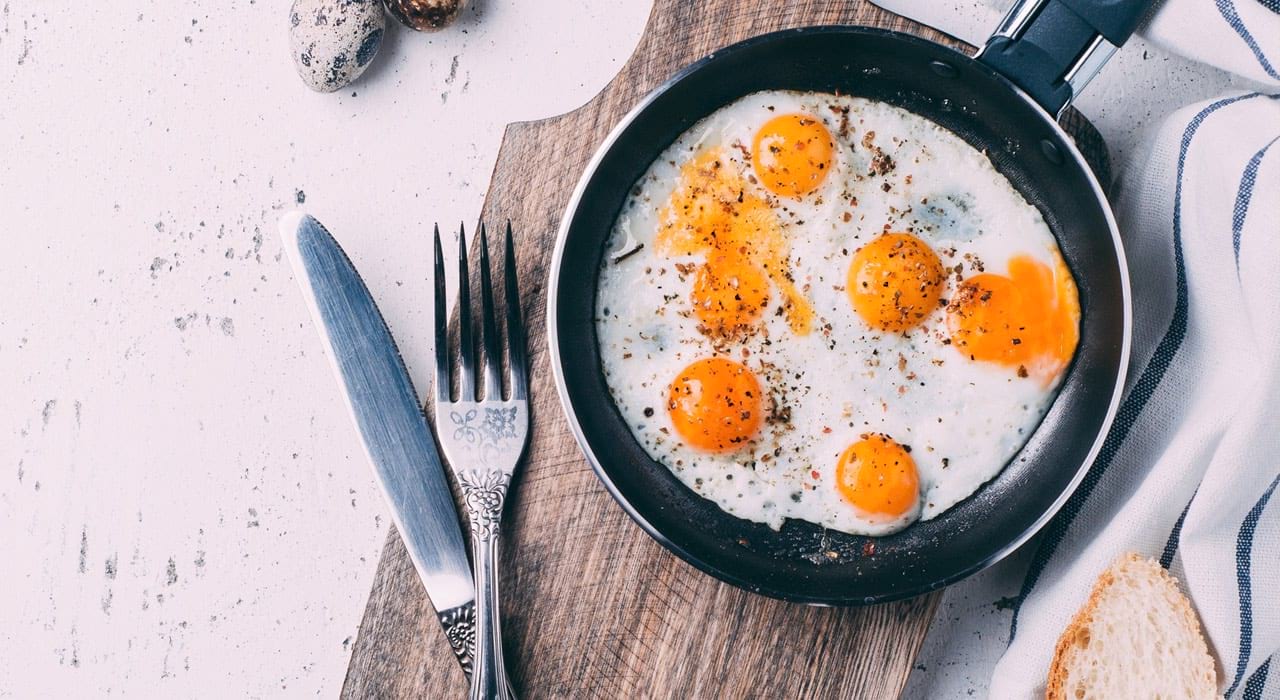By Heather Prescott | Published on May 3, 2017
The most common thing we’ve been told about yolks for the past 50 years is that they have too much cholesterol. Oh and fat.
Fortunately, you now live in a more sophisticated world with updated nutritional research.
What the food experts have found is that a large chicken egg weighs about 50g and has about 70 calories, 5g fat, 185mg cholesterol, 70mg sodium, 6g protein, 65mg potassium and several other vitamins and minerals. But take away the yolk and you’re left with 17 calories, just 4g of protein, some trace sodium and a light sprinkling of minerals. This might be ideal for calorie counters, but you’re selling your health short. Here’s what you’ll get from the yolks.
Stronger nerves with choline
This is a neurotransmitter that you need to activate your muscles when you’re training or just plain walking to the shops. You’ll be sure to get one-quarter to one-third of your recommended daily allowance by consuming one single egg, since 99% of the choline is contained in the yolk.
Recover faster with carotenoids
These are a class of more than 600 naturally occurring pigments which are actually good for you. In fact, research in Nutrition and Clinical Care found these antioxidants could help protect you against eye disease and can help mop up free-radical damage done during exercise.
Absorb more vitamins
Each egg yolk you eat supplies you with calcium, iron, phosphorus, zinc, copper, manganese, selenium, vitamins B1, B6, B9, and B12. Plus the fat in the egg helps you absorb more of vitamins A, D, E and K. These are responsible for growing and maintaining strong bones, regulating your metabolism, burning energy, building a stronger immune system, fighting cancer and blood clotting. And those are just the headlines because they offer you so much more.
Smoother skin with more essential fatty acids
The omegas in egg yolks are important fats that your body can’t make. Not only do these reduce excess levels of triglycerides (fat tissue) and inflammation, they also give you healthy skin, hair and a libido. It’s like eating a beauty regime.
The right kind of cholesterol
This is not the greasy bad kind. Yolks have the good high-density lipoproteins (HDL) that won’t contribute to heart disease. Having a higher level of HDLs actually helps remove the LDL (bad) cholesterols that are ultimately responsible for heart and coronary problems.
For more nutritional advice and more subscribe to the MACROS newsletter.
An ACE certified personal trainer and fitness nutrition specialist

